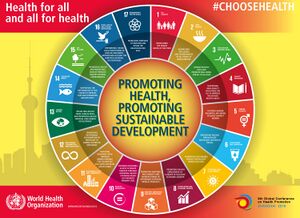Health Promotion
Introduction
When it comes to addressing public health issues, health promotion is more important than ever. The global health situation is at a critical juncture, with the globe confronting a 'triple burden of diseases,' which includes an unfinished agenda of communicable diseases, newly emerging and re-emerging diseases, and the extraordinary development of non-communicable chronic diseases. Factors that aid progress and development in today's world, such as globalization of trade, urbanization, ease of global travel, advanced technologies, and so on, act as a double-edged sword, increasing the vulnerability to poor health on the one hand while also contributing to sedentary lifestyles and unhealthy dietary patterns on the other. There is a high incidence of tobacco smoking, as well as an increase in poor eating habits and a decrease in physical activity, all of which contribute to an increase in biological risk factors, which leads to an increase in non-communicable diseases. Health promotion is a multi-faceted social and political process. It encompasses not just efforts aimed at improving individuals' skills and capabilities, but also actions aimed at improving the social, environmental, and economic determinants of health in order to maximize their beneficial impact on public and personal health. Health promotion is the process of helping people to have more control over the determinants of health, both individually and collectively, and thereby enhance their health.
Health promotion strategies and priority action
Ottawa Charter identifies three basic strategies and priority action for health promotion. These are advocacy for health to create the essential conditions for health; enabling all people to achieve their full health potential; and mediating between the different interests in society in the pursuit of health.
Enabling Mediating
The Ottawa Charter identified five priority action areas:
Build healthy public policy; Create supportive environments for health; Strengthen community action for health; Develop personal skills; Reorient health services







